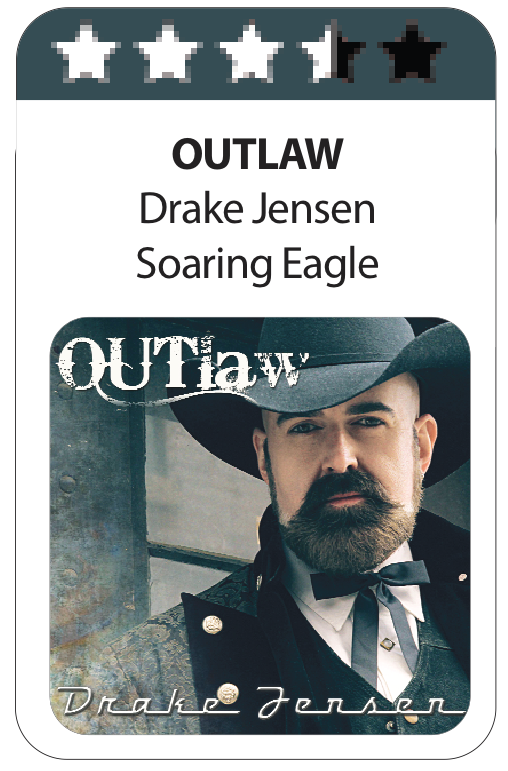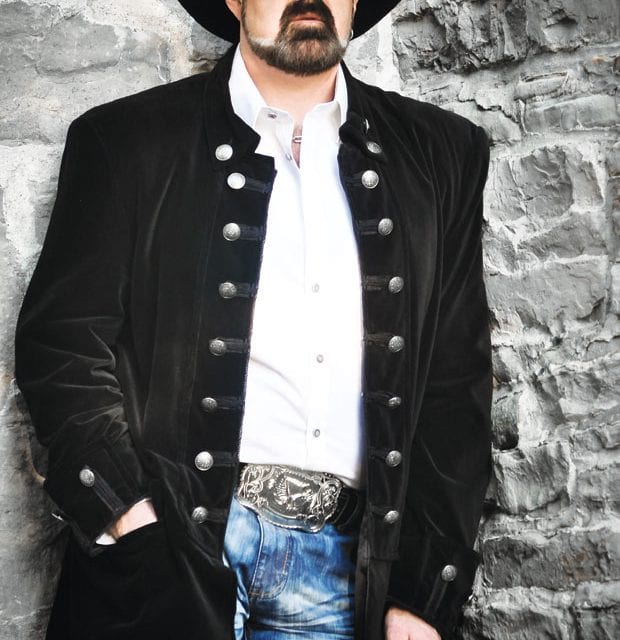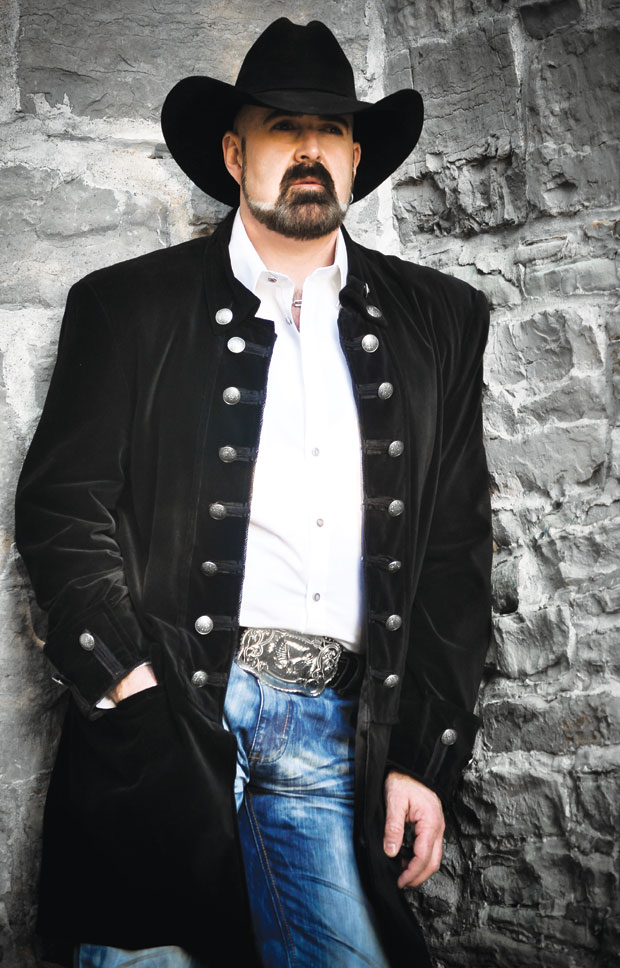Out C&W artist Drake Jensen makes a viable shot at stardom with ‘OUTlaw’
The music genres of hip-hop and country & western may be the last bastions where their mainstream makers still struggle to find a queer voice. Even so, both have undergone some opening in the closet doors, thanks to artists like K.D. Lang, Chely Wright, Frank Ocean and Queen Latifah. But not quite. As the “gay” label attached to Wright, she ventured into a more folk sound, while Lang veered into adult contemporary/ torch songs. So, country has been without a genuine out artist. It doesn’t seem fair, especially in Texas — dying dogs and rusty trucks are as much a part of LGBT life as a gym membership or Sunday Funday mimosas.
This is where Drake Jensen steps in.
Much of the pre-release touting of Jensen’s second full-length album, OUTlaw, as the product of an out country star redound as an attempt to expand his presence within the LGBT community, while merely giving him an angle to dangle before the mainstream country music scene at large. But on the CD, he makes his move to be a definitive voice in country music that also just happens to be gay. And he does it with a honed sense of balance.
It was smart of Jensen not to set out to make “the gay country album,” which some of the hype seemed to indicate. On 11 tracks, he shows a solid effort that plays with heartfelt lyrics and the proper amount of country clichés — yes, with a twist, but hardly climbing Brokeback Mountain.
The gay perspective comes through distinctly in “Checotah, Oklahoma,” reminding us that every cowboy’s got a story. While painting a picture of a closeted man who fights everything inside him he delivers an epic listen. Jensen’s pure voice can punctuate the right poignancy needed to empathize with his character. By detaching himself from the lyrics, Jensen lets us see a man we all probably know, reminding us of the painful struggle inside a closet that feels as big as a hometown. This should go down as a classic in the LGBT music continuum.
He takes the same approach on “Scars,” singing the story of two bully victims. Jensen lets you make up your own mind about who his characters are, but sings a roadmap to help you cement who his people are. It’s a brilliant talent and demonstrates that he trusts his audience to fill in the gaps.
When he enters radio-ready mode, as he does on the opening track “When It Hurts Like That,” he fits right in with the Blake Sheltons and Billy Curringtons, but with some throwback to hitmakers of the ‘90s like Randy Travis and George Strait. Here, he does play the “vague pronoun” game, leaving the object of affection up to the listener, but the songs are so well done, that seems peripheral. And besides, we know what’s up.
“Fast Enough For Me” is downright formulaic with an upbeat delivery that shows his disdain of rapid-fire living. When he sings a sunset drive in my old Jeep / my baby’s hand upon my knee, queer listeners will be challenged to suppress a giddy smile knowing he’s referring to a hunky boyfriend in the passenger seat. But he’s writing with the same sensibilities that someone like Sara Evans would follow. Whether by design or not, he has the chops to be a star.
 The end of the album tapers into a lull. Jensen builds up energy only to fade away. Strangely, the last three songs are so uninspired, they almost undermine what came before: “Every Other Day” drones on without any emotional punch behind the lyrics (like I can hear you calling my name / and our song just don’t sound the same), then he ventures into some near-ridiculousness with the front-porch-ready “Midnight Forest Cricket Chorus,” a banjo laced sing-along that plays more forced than authentic.
The end of the album tapers into a lull. Jensen builds up energy only to fade away. Strangely, the last three songs are so uninspired, they almost undermine what came before: “Every Other Day” drones on without any emotional punch behind the lyrics (like I can hear you calling my name / and our song just don’t sound the same), then he ventures into some near-ridiculousness with the front-porch-ready “Midnight Forest Cricket Chorus,” a banjo laced sing-along that plays more forced than authentic.
But Jensen assures that a gay singer can have a country music perspective. OUTlaw is what it should be: A collection of songs about love and loss — character-driven tales buoyed by a sturdy voice, solid instrumentation and classic lyricism that should do the genre proud … despite the absence of a “lost dog” ballad. We’ll give him time.
— Rich Lopez
This article appeared in the Dallas Voice print edition March 15, 2013.
















